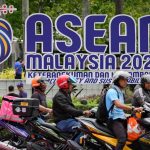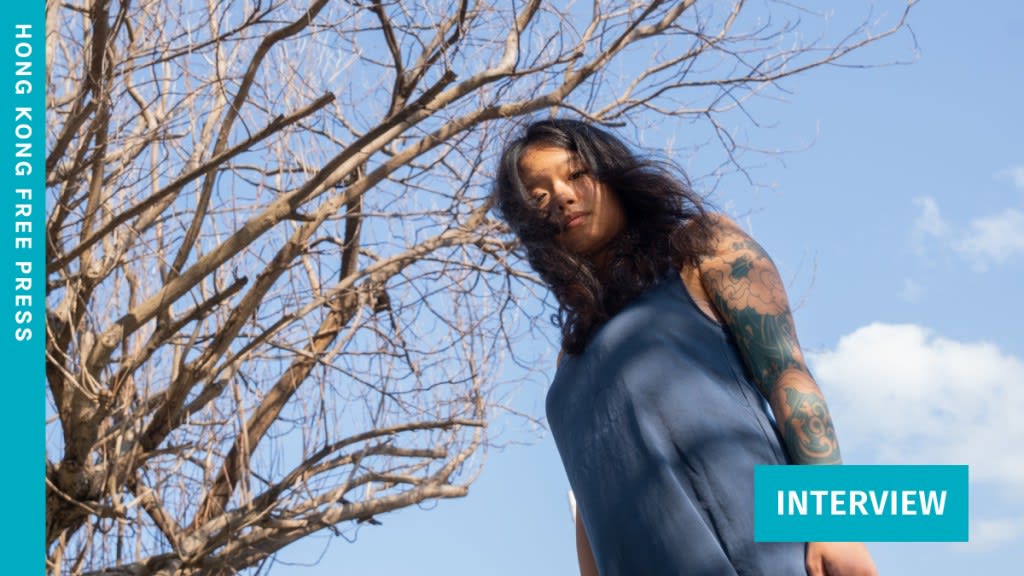A Journey of Cultural Awakening and Literary Expression
Hong Kong poet Tim Tim Cheng’s journey of social awakening began on a Lunar New Year day in February 2011. At the time, Cheng, still a teenager, was part of a small crowd gathered in Choi Yuen Tsuen for an arts festival known as “Choi Yuen Tsuen Woodstock.” This event was organized by villagers, indie musicians, artists, academics, and activists to mark the village’s final days before it was set to be demolished for a high-speed rail project connecting Hong Kong to mainland China. Despite the resistance from villagers and activists, the demolition proceeded.
That day, Cheng witnessed frontman and lyricist Leung Wing-lai of the Hong Kong band An Id Signal performing barefoot in the dry soil, wailing into the microphone as clouds of dust swirled around the audience. For most of Cheng’s life, Hong Kong had felt like a blur. However, that moment captured a sense of clarity and focus for her.
Fast forward 14 years, Cheng, now a published poet who divides her time between Glasgow and Hong Kong, found herself in a much larger crowd at the band’s album launch in April. Her connection with An Id Signal has come full circle. Cheng, who first saw the band as a secondary school student, is credited with translating the band’s lyrics for its latest release. She described the translation project as volunteer work.
The band’s single “Volatile Consolation” appears in her latest English-language poetry collection, The Tattoo Collector—the off-kilter, dissonant screams translated onto paper. Writing about those moments, she said, was a way to connect with history. “One of the biggest takeaways I got from writing this book is to sit with the pain of the disappearance of formative things, be it music venues or large-scale protests,” Cheng reflected.
The Tattoo Collector, Cheng’s second book, was published in 2024—three years after she moved to the UK and just a year after she published a shorter collection, Tapping at Glass. Two months ago, The Tattoo Collector was longlisted for the inaugural poetry category of the Jhalak Prize, which recognizes books by writers of colour in the UK and Ireland. Earlier this month, Girl Ghosts, one of the poems in The Tattoo Collector, was shortlisted for the Forward Prizes for Poetry, one of the leading poetry awards in the two countries.
Now, the poet is branching out and considering how translation could deepen her relationship with Hong Kong’s literature—in both English and Chinese—and the city itself.
A New Generation of Anglophone Hong Kong Poets
Cheng, 32, is part of a new generation of Anglophone Hong Kong poets, following a lineage of literary figures and translators from the city, such as Jennifer Wong, Mary Jean Chan, and Nicholas Wong. Over the past decade, Hong Kong’s English literature has gained increasing recognition. Thanks to these writers, there is growing academic interest in understanding how residents feel about the social and political changes in the city.
“They paved the way for writers like me who write about Hong Kong,” Cheng said. However, save for a few quips in English, her interview was conducted fully in Cantonese, reflecting her in-between cultural belonging.
Cheng grew up in a working-class family in a public housing estate in Tin Shui Wai, in the northwestern New Territories. Raised by her Indonesian-Chinese great-grandmother and grandmother, who moved to the city from Fujian, she never learned much about Hong Kong from them or her Cantonese-Hokkien parents. “When I was younger, I wanted my English to be perfect, so I avoided Chinese books. But that was a terrible way to think,” she reflected, looking back on an Anglophilic streak during her time at an English-language secondary school.
After studying English and education at Hong Kong Baptist University, where she formally studied and wrote English poetry, Cheng worked as an English teacher for several years. The job provided decent salaries, but burnout eventually set in. Her last job as a full-time teacher was at the Lee Shau Kee School of Creativity, a somewhat unorthodox secondary school in Kowloon City that allows students specializing in creative arts to work on their own passion projects.
Pointing to the catalysing effect the students had on her, Cheng left Hong Kong to pursue a master’s degree in creative writing at the University of Edinburgh in 2021, with a loan from a friend.
Lived Outside, Hidden Behind
The poet signed copies of The Tattoo Collector by crossing out her transliterated English name, “Tim Tim Cheng,” and scribbling the Chinese characters of her name underneath. Occasional Cantonese colloquialisms appear in Cheng’s English poems, possibly alienating—or engaging—readers outside Hong Kong.
She harbours a sense of scepticism towards the English language. Despite it being her default “literary language,” she feels both close to and alienated from it. English is a language she has simultaneously “lived outside” and “[hidden] behind,” she writes in her book.
While bilingualism is usually treated as a prized skill in Hong Kong, the poet has a more ambiguous take. “BYELINGUAL,” Cheng wrote in a text message to HKFP, referring to the state of speaking two languages but losing proficiency in both. It was her sense-for-sense translation of a Cantonese idiom literally meaning “neither salty nor bland,” which she had earlier used in an interview to describe her relationship with the two languages.
The Tattoo Collector oscillates between Hong Kong, where she was born and raised, and Scotland, where she is currently based. It features conversations on class and privilege with a classmate in Glasgow and memoirs of Hidden Agenda, a defunct live music venue in Hong Kong’s industrial district that was raided by the police in 2016, as well as rural landscapes, motherhood, immigration, and pro-democracy protests.
Meanwhile, Girl Ghosts, a poem partly inspired by stories she heard from her mother and grandmother, is a homage to the poet’s family roots in Indonesia and Fujian.
Diaspora and Identity
When discussing the locales that shape her work, Cheng is hesitant to identify herself as part of Hong Kong’s diaspora. Indeed, she hasn’t completely settled overseas. Cheng, who now lives—and writes—between Hong Kong and Scotland, is preparing to start teaching at the Chinese University of Hong Kong’s English Department in September.
Before flying back to Glasgow for a four-month stint in May, she spent a little under half a year in Hong Kong: teaching, holding book talks, editing, and supervising master’s projects, scraping together funds to pay for a five-year talent visa, student loans, flights, and rent in the UK.
Yet she is somewhat wary of Hongkongers overseas. “Some Hongkongers here don’t want to hang around other Hongkongers because they’re worried their children won’t be able to integrate and become a ‘real UK Citizen,’” Cheng said, with an air of contempt.
Cheng recalls attending a Lunar New Year fair, where Hongkongers—those “who had decided they weren’t going back,” she said—printed out Hong Kong road signs, mailboxes, and vending machines as decorations, as if to preserve an image of the city they knew. “But maybe Hong Kong’s streets have changed so much that they’re no longer the same image,” she said. “I still want to know what’s happening on both sides; I’m a bit nosy like that.”
Slow to pigeonhole herself into overseas publishers’ clichés of what a “diaspora” poet might be, Cheng doesn’t feel the need to idealise Hong Kong, as some self-proclaimed diaspora poets might do for their home countries. “You left for a reason. Your origin might not have given you enough, so why talk about it like it’s something great?” she asked.
For Cheng, translating is also a way to put Hong Kong writers on the map, without overtly caving to the Anglospheric gaze. “I want to catch up on Chinese stuff that I missed out on, but I don’t want to deviate too much from what I’m currently doing,” she said. She recently began translating Hong Kong writer Lee Ka-yee’s essay collection Exposure, under the mentorship of literary translator Jennifer Feeley, who translated the works of the city’s late literary icon Xi Xi.
“It’s also a way of putting my understanding of Hong Kong to the test,” Cheng added. “A lot of writing that comes out of Hong Kong, especially work that can make it into the English-speaking world, always has this vibe that it was made with the expectation of being seen by other people. But Ka-yee and other local Hong Kong writers just approach writing simply in terms of how they see the world, how Hongkongers see the world. And I want to bridge those gazes through translation.”
“Maybe it’s also a way to tell my younger, 12-, 13-year-old self: You actually can flow between Chinese and English.”










